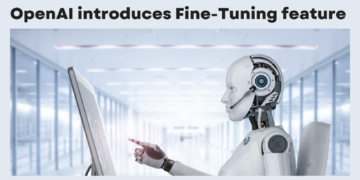In today’s rapidly evolving business landscape, staying ahead of the curve is essential for sustained success. Enter Industry 4.0, a digital revolution poised to redefine the way businesses operate. Let’s delve into its profound impact across sectors, from manufacturing to healthcare.
Technologies of Industry 4.0
Industry 4.0 emerges as a technological marvel rooted in the convergence of several cutting-edge technologies:
- Cyber-Physical Systems (CPS): These systems merge physical processes with computational capabilities, paving the way for intelligent machines and real-time monitoring.
- Internet of Things (IoT): A sprawling network of interconnected devices facilitates data collection, enabling informed decisions.
- Artificial Intelligence (AI): Machine learning algorithms process data to predict outcomes, optimize processes, and drive autonomous decision-making.
- Big Data Analytics: Advanced analytics tools transform colossal datasets into actionable insights, revolutionizing businesses’ operations.
Applications Across Sectors
The applications span various sectors, unleashing transformative potential:
- Manufacturing: Smart factories employ real-time data to optimize production, enhance quality control, and enable human-machine collaboration.
- Predictive Maintenance: AI and IoT minimize downtime by predicting equipment failures in advance.
- Quality Control: Advanced AI-driven image recognition and sensors elevate product quality.
- Supply Chain Optimization: Real-time tracking and data analytics streamline supply chains.
Case Studies of Industry 4.0 Implementation
It isn’t a theoretical concept—it’s making waves in the real world:
- Siemens: The manufacturing giant embraced Industry 4.0, using data-driven insights for predictive maintenance. Downtime dropped, and productivity surged.
- Bosch: Bosch’s smart factory in Germany showcases human-robot collaboration. Robots and workers cooperate seamlessly, boosting efficiency.
- General Electric (GE): GE leveraged IoT sensors to monitor gas turbines in real-time. This predictive maintenance approach increased turbine lifespan and reliability.
The Advantages Unveiled
Industry 4.0 offers a plethora of merits:
- Enhanced Efficiency: Smart factories operate with minimal human intervention, reducing errors and delays.
- Cost Savings: Predictive maintenance curtails unexpected breakdowns, saving on repair costs.
- Quality Improvement: AI-driven quality control minimizes defects, upholding product excellence.
- Data-Driven Decisions: Real-time data empowers informed decision-making and responsive strategies.
- Sustainability: The aligns with sustainability goals by optimizing resource usage and reducing waste.
Obstacles on the Industry 4.0 Journey
While it promises transformation, it isn’t without its challenges:
- Data Security: Protecting vast datasets from cyberattacks is paramount. Robust cybersecurity measures are essential.
- Skills Gap: A digital-savvy workforce is required for Industry 4.0. Addressing the skills gap through training is critical.
- Integration Complexity: Integrating various systems into a cohesive Industry 4.0 environment can be intricate. Interoperability standards such as OPC UA are crucial.
- Privacy Concerns: The collection of extensive data raises privacy issues. Transparent data handling and compliance with regulations are vital.
- Initial Costs: Implementing Industry 4.0 technologies involves significant initial investments that may deter some businesses.
Industry 4.0’s Impact Beyond Manufacturing
Its impact extends far beyond the realm of manufacturing:
- Healthcare: Smart medical devices, AI diagnostics, and remote monitoring revolutionize patient care.
- Intelligent Cities: Infrastructure improvements, such as smart grids and traffic management, enhance urban living.
- Energy Management: Industry 4.0 optimizes energy consumption, reducing waste and promoting sustainability.
Future Prospects and Innovations
The journey continues with exciting prospects:
- 5G Connectivity: The advent of 5G networks will supercharge the technology with enhanced real-time connectivity.
- Quantum Computing: Quantum computing promises exponential processing power, opening new frontiers in simulations, optimizations, and AI.
- Sustainability: Industry 4.0’s alignment with sustainability goals will drive innovation in eco-friendly practices.
Embracing the Digital Revolution
Industry 4.0 transcends the realm of buzzwords, heralding an era of profound transformation. It combines CPS, IoT, AI, and big data analytics to redefine industries and catapult them into the digital age. Despite challenges, the potential for enhanced productivity, sustainability, and quality of life is undeniable. The journey has only just commenced, and the future holds untold promises in this epoch of Industry 4.0.



























